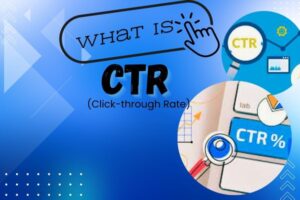Table of Contents
ToggleIntroduction
In today’s world of hyperconnectivity, the traditional forms of advertising are slowly losing their relevance to more personalized and genuine approaches. Step into the world of influencer marketing, Have you ever wonder what is influencer marketing in digital marketing? It is where brands and businesses in the digital marketing arena are rewriting the marketing rulebook. In this detailed guide, we will dissect the nuances of influencer marketing, its evolution, how it works, and the benefits it offers businesses who seek to exploit its full potential for marketing success.
Understanding Influencer Marketing
What is influencer marketing in digital marketing. In its core, influencer marketing is a strategic collaboration between brands and individuals wielding considerable online influence, known as influencers. These influencers have built massive audiences on social media platforms like Instagram, YouTube, TikTok, or via blogs, which give them the power to change the purchase decisions of their audience through authentic content creation and engagement.
Evolution of Influencer Marketing
While influencer marketing may seem like a relatively recent phenomenon, its roots can be traced back to celebrity endorsements and brand sponsorships. However, what sets influencer marketing apart is its emphasis on authenticity, relatability, and niche relevance. Unlike traditional celebrities, influencers often have more intimate connections with their followers, fostering trust and credibility in their recommendations.
The Rise of Social Media Influencers
The proliferation of social media platforms has democratized influence, allowing individuals from diverse backgrounds to build and monetize their personal brands. Influencers come in various forms, including lifestyle bloggers, beauty gurus, fitness enthusiasts, gamers, travel vloggers, and more. What unites them is their ability to create engaging content that resonates with their audience’s interests and aspirations.
Mechanics of Influencer Marketing
Influencer marketing campaigns generally follow a structured process:
Strategy Development:
Before launching an influencer marketing campaign, brands must define their objectives, target audience, messaging, and key performance indicators (KPIs). Understanding the brand’s identity and values becomes important for picking influencers whose personal brands align with the values of the brand.
Identification of Influencers:
Once the strategy is ready, brands identify influencers whose audience demographics, interests, and engagement would align with the brand’s target market. Tools and platforms, such as influencer databases, social media analytics, or influencer marketing agencies, can help locate the right influencers.
Influencer Collaboration and Content Creation:
Brands collaborate with influencers to define the goals of campaigns, deliverables, timelines, and compensation agreements. The influencers then proceed to create authentic content, including sponsored posts, videos, stories, or blog articles, which integrate the brand message within their own narrative.
Campaign Activation:
The content created by the influencers is shared on their respective social media platforms, accessing the audience of the influencer, thereby creating engagement, brand awareness, and possibly driving traffic or conversions. The brand may amplify the reach of influencer content through paid advertising or cross-promotional efforts.
Tracking and Evaluation of Performance
Throughout the campaign, brands monitor key metrics—reach, engagement, click-through rates, conversions, and return on investment. The possibility of analyzing campaign performance allows brands to evaluate the effectiveness of their influencer partnerships and make informed decisions regarding future initiatives.
Benefits of Influencer Marketing
Influencer marketing offers a plethora of benefits for brands looking to connect with consumers in an authentic way and drive business results:
Authenticity and Trust:
Influencers are perceived by their followers as relatable and trustworthy figures, thereby forging authentic relationships and credibility in their recommendations. Authenticity is the foundation of influencer marketing, allowing brands to resonate deeper with audiences and build long-term brand loyalty.
Targeted Reach and Engagement:
Influencers have spent the time necessary to build communities of followers with similar interests, passions, and demographics. Partnering with influencers whose followers fall into a brand’s target market provides highly targeted reach and engagement, maximizing the impact of marketing efforts.
Content Creation and Distribution:
Influencers are experts at creating compelling, visually appealing content that garners their audience’s attention. Influencers use their creative expertise and storytelling ability to amplify the brand message and product offerings in an organic, non-intrusive manner.
Social Proof and Brand Advocacy:
When an influencer endorses a brand or product, they lend their social proof and endorsement to the validation of the brand’s value proposition to their followers. Influencers become brand advocates, championing products they genuinely love and sparking recommendations through word-of-mouth in their community.
Scalability and Cost-Effectiveness:
Influencer marketing provides an avenue of scalability, permitting brands to partner with a large variety of different influencers across niches and markets. In contrast to traditional advertising channels, influencer marketing commonly has a higher ROI because it yields targeted and authentic content at a fraction of the cost.
Key Considerations for Influencer Marketing Success
While influencer marketing presents lucrative opportunities for brands, success hinges on strategic planning, effective execution, and ongoing optimization:
Authenticity and Transparency:
Maintain authenticity and transparency throughout influencer partnerships to preserve trust and credibility with the audience. Disclose sponsored content clearly and ensure that influencers align with the brand’s values and messaging.
Relationship Building:
Nurture positive relationships with influencers built on mutual respect, transparency, and open communication. Invest time in understanding influencers’ preferences, goals, and creative vision to foster collaborative partnerships.
Performance Measurement:
Establish clear KPIs and metrics to measure the success of influencer campaigns, such as reach, engagement, conversions, and ROI. Use analytics tools and performance tracking platforms to gather actionable insights and optimize future campaigns accordingly.
Compliance and Legal Considerations:
Adhere to relevant regulations, guidelines, and disclosure requirements governing influencer marketing, such as the Federal Trade Commission (FTC) guidelines in the United States. Stay informed about industry best practices and ethical standards to mitigate compliance risks.
Adaptability and Innovation:
Stay abreast of emerging trends, platform updates, and shifts in consumer behavior to adapt influencer marketing strategies accordingly. Experiment with new formats, creative concepts, and collaboration models to stay ahead of the curve and drive innovation in influencer marketing.
Conclusion
Influencer marketing has emerged as a powerful force reshaping the digital marketing, offering brands unparalleled opportunities to connect with consumers authentically, drive engagement, and achieve business objectives. By leveraging the influence and creativity of social media influencers, brands can amplify their brand message, foster meaningful connections with their target audience, and ultimately drive sustainable growth in an increasingly competitive market.
As brands continue to embrace influencer marketing as a core component of their marketing strategy, the landscape will evolve, presenting new challenges and opportunities for innovation. By staying agile, data-driven, and focused on delivering value to both influencers and audiences, brands can unlock the full potential of influencer marketing and navigate the dynamic digital landscape with confidence and success.



